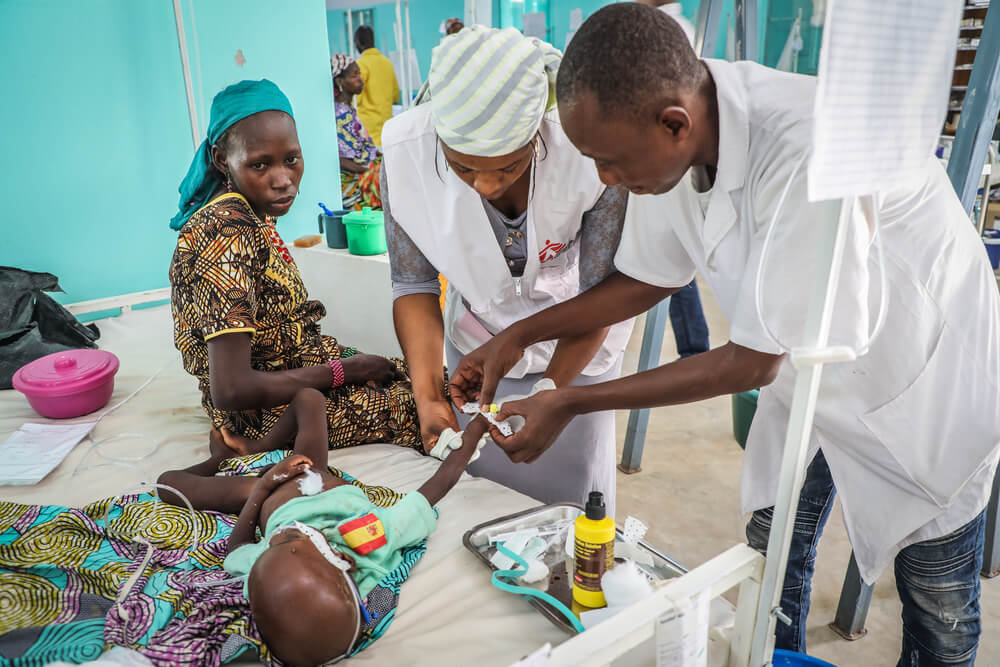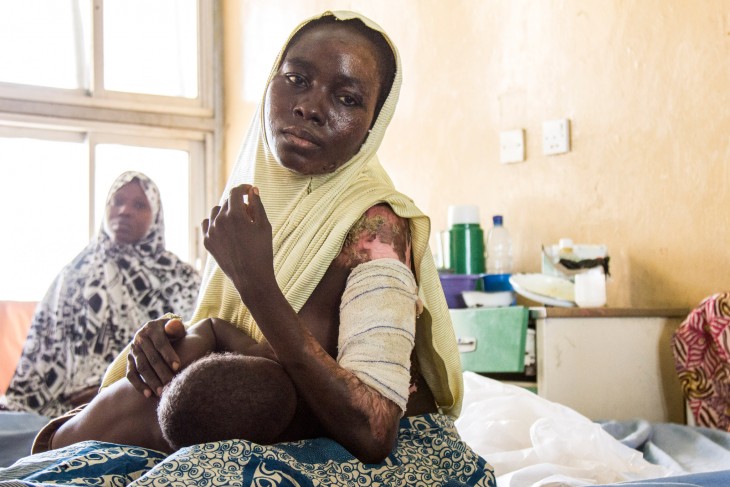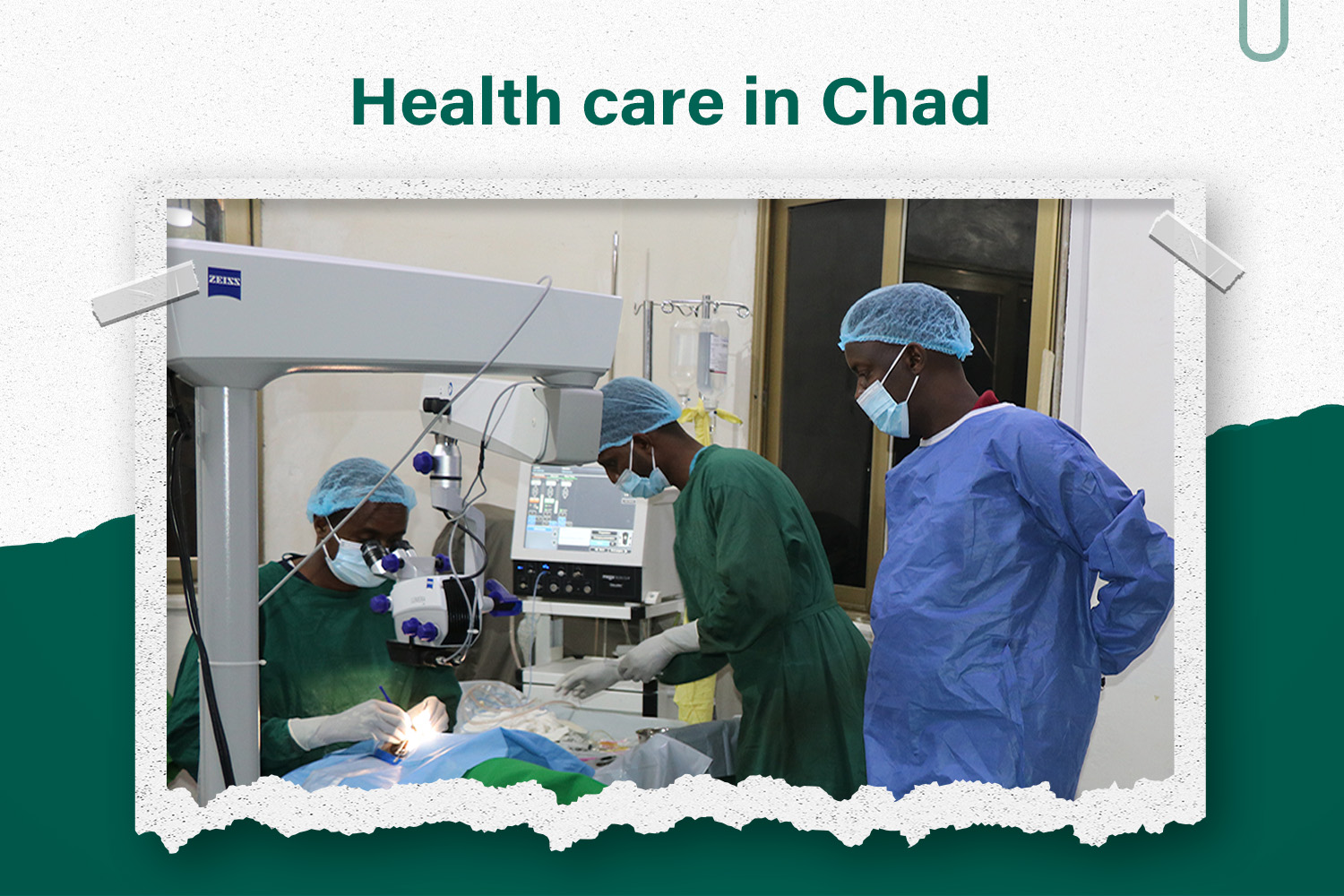Health care in Nigeria
Healthcare is defined as the set of services and systems that are provided to maintain the health of individuals and communities. In Nigeria, access to quality healthcare is extremely important due to the high population density and the increasing health challenges facing the population. Health services play a crucial role in improving the quality of life and reducing mortality rates, especially among children and mothers.
Challenges facing healthcare in Nigeria
Healthcare in Nigeria faces many challenges, including lack of government funding and dilapidated infrastructure. The sector is also suffering from a shortage of qualified medical staff and the necessary resources. The lack of equipped health facilities multiplies these difficulties, which negatively affects the quality of the services provided.
Health infrastructure in Nigeria
Lack of health infrastructure in Nigeria
Nigeria suffers from an acute shortage of health infrastructure, which leads to a deterioration in the health services provided to the population. There is a large shortage of hospitals and clinics, especially in rural areas where access to basic medical care is difficult. Many existing health facilities lack modern medical equipment and suffer from maintenance problems, which hampers the provision of effective services.
Nigerian government’s efforts to strengthen health infrastructure
The Nigerian government is trying to improve the health situation by investing various sources to strengthen infrastructure. These efforts include the creation and renovation of health facilities, increasing the availability of advanced medical devices. These initiatives are aimed at achieving universal health coverage and improving the quality of Health Services. It also promotes partnerships with private sectors and international organizations to support the development of this vital sector.

Health care in Nigeria
Health services available in Nigeria
Primary care and public hospitals in Nigeria
Health care in Nigeria consists mainly of the three levels: primary, secondary, and tertiary care. Health centers in villages and small towns provide primary care services, include vaccinations, maternal and child care, treatment of common diseases. Public hospitals offer more advanced services, including surgical and medical specialties. However, there are still challenges facing these facilities such as overcrowding and lack of resources.
Special services and specialized care in Nigeria
Private hospitals and clinics in the major cities of Lagos and Abuja provide higher levels of healthcare, including specialized services such as cardiac care and cancer care. Despite the quality of the services provided in these centers, their cost remains a dilemma for many Nigerians. In addition, importing medical equipment and maintaining high levels of training for health personnel are additional challenges facing the health sector in Nigeria.
Challenges affecting healthcare in Nigeria
Lack of funding and health resources in Nigeria
* Nigeria is experiencing financial challenges leading to a shortage of resources allocated to the health sector.* Government funding for Health Services is often insufficient, which leads to the dependence of medical facilities on outdated equipment and limited medicines.* The lack of financial resources leads to difficulties in the management of public hospitals, prevents access to medical materials and modern technology.
Shortage of health personnel and vocational training in Nigeria
* The health system in Nigeria is facing a significant shortage of trained medical staff, especially in rural areas.
* Professional migration of healthcare professionals abroad reduces the number of specialists available locally.
The lack of professional training is an obstacle to the development of medical services and prevents medical staff in Nigeria from keeping abreast of developments in global health care.
Dependence on health care abroad
Increased reliance on overseas healthcare in Nigeria
* Due to the lack of local health services, many Nigerians resort to seeking treatment abroad.* Countries like India, the United Kingdom and the USA have become popular destinations for Nigerians seeking advanced medical services.* This trend is causing a large outflow of funds out of the country rather than contributing to the improvement of local health systems.
The challenges of relying on healthcare abroad
* The challenges associated with treatment abroad include the high costs and the difficulty of obtaining a medical visa.* Patients face additional difficulties related to the cultural and linguistic dimension when communicating with doctors and medical staff abroad.* Over-reliance on overseas treatment may neglect the need to strengthen healthcare infrastructure and Human Resource Development in Nigeria.

Factors influencing the improvement of health care in Nigeria
Health awareness and education in Nigeria
* Health education: health education and awareness of the importance of disease prevention is a pivotal factor in improving health care.* Awareness programs: health awareness programs contribute to spreading knowledge and how to deal with emergency situations that may occur without the need to travel.* International cooperation: cooperation with global health organizations can provide the necessary resources to improve the local health system.* Infrastructure development: the construction of equipped hospitals and the provision of modern medical instruments encourage local doctors and reduce the need to travel.* Government investment: strengthening health care requires effective government investment and political will to improve the quality of health services provided.
The role of society and government in improving health care
The government and the community have a crucial role to play in furthering AHAD society’s efforts by providing financial and legislative support. The government can facilitate the task by adopting policies that promote health care and providing incentives to institutions that provide excellent medical services. For its part, the community contributes an active role by participating in health awareness programs and volunteering in medical initiatives. Investing local resources in health programs can catalyze positive change in Nigeria’s healthcare system.

Health care in Nigeria
The role of the AHAD Association in the health sector in Nigeria
AHAD is an association working in Africa. The association works to provide health care and support services to needy groups in society. Its activities include the provision of basic health care, disease prevention, public awareness of Health, Personal Hygiene and proper nutrition.
AHAD works to secure the necessary resources to provide health services, whether through donations or cooperation with other health institutions. The association is keen to develop the health infrastructure in the country, promote health awareness, raise awareness about epidemic diseases and ways to prevent them.
Read also:




